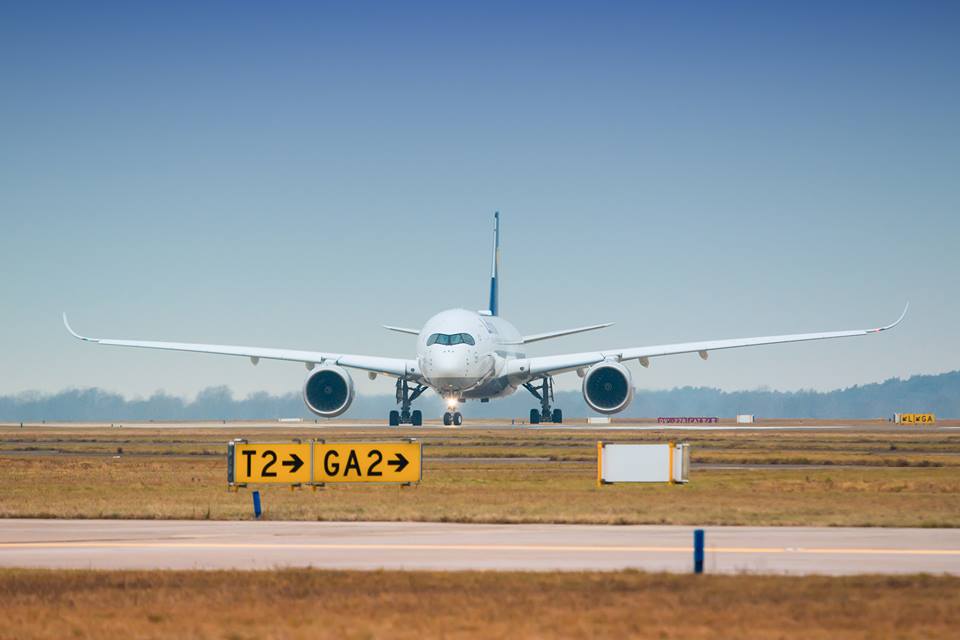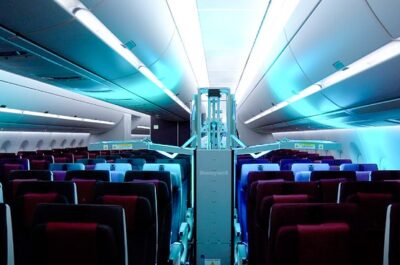Investments in innovation and technology such as touchless biometrics, self-service and apps to help propel air transport industry’s tech-led COVID-19 recovery.
As airlines, airports and their air transport sector partners continue to plot the industry’s recovery from the COVID-19 crisis, a focus on innovation, and investment in technologies such as touchless biometrics, self-service, automation, and mobile devices and apps, will have a crucial role to play. These are some of the key insights of a new report jointly released by Fast Future, Future Travel Experience (FTE), and the Airline Passenger Experience Association (APEX).
The study findings are being launched during a free industry webinar being held from 16.00-18.00 UK (BST). A panel of industry experts from Bangalore International Airport Limited, Swedavia, Viva Air Labs and Future Travel Experience will discuss the results and share their own innovation and digital transformation strategies, priorities and future plans. For full details and registration, visit the event web page.
The Impacts of COVID-19 on Innovation and Digital Transformation in Air Transport report, which is the second instalment of the Air Transport 2035 series, explores how air transport industry stakeholders see the coronavirus pandemic affecting their current priorities and future strategies for innovation and digital transformation. The study draws on a combination of a global air transport industry survey, desk research, expert interviews, and the inputs of expert contributors and participants at industry webinars held on May 13th and May 20th.
Investing in innovation and digital transformation
A global survey conducted as part of the report found that 63.7% of respondents expect the COVID-19 crisis to accelerate innovation and digital transformation projects within their organisation, 19.2% expect their organisation to continue with their pre-coronavirus plans, and only 17.1% expect innovation and digital transformation projects to be delayed.
More than three-quarters of respondents (77.4%) expect to see increased adoption of “touchless” biometrics to verify passenger identity, 74.8% anticipate greater use of self-service and automation for passenger processing, and 69.2% expect to see technology used to identify passengers displaying COVID-19 symptoms.
Increased use of mobile devices and apps to assist or control the passenger journey (67.1%), and use of technology to identify staff displaying coronavirus symptoms (58.6%), also feature highly on the priority list. At the other end of the scale, despite a number of trials being announced, globally only 27.4% of respondents anticipate the use of robots for customer service tasks.
A new-look in-flight experience
Looking at the impact that COVID-19 will have in the aircraft cabin, cleanliness and sanitisation are highest on the list of priority actions, with 87.7% of survey respondents undertaking, or expecting to see, increased efforts to clean and sanitise the cabin. A further 69% expect to see increased availability of crew personal protective equipment (PPE), while 65.3% anticipate increased passenger communication regarding cleaning/sanitisation measures. A further 59.4% expect enhanced crew training in handling passengers showing COVID-19 symptoms. The majority of respondents also expect to see increased availability of passenger PPE (56.2%), and new forms of catering and service delivery to minimise passenger-crew engagement (53.9%).
The importance of collaboration
The report also reveals that 84.6% believe COVID-19 will lead to increased collaboration between industry stakeholders. The research highlights vital areas in which collaboration should be embraced to support the industry’s recovery. In addition to greater collaboration between internal departments to speed up issue response and routine processes, participants believe airlines, airports, and governments should work more closely together for the good of the sector. For instance, airlines and airports are encouraged to enhance real time data sharing and to create direct support links for each aircraft with destination medical teams to update in real time on possible on-board infections. Furthermore, the air transport industry is encouraged to work with governments to enable the exchange of passenger symptom and infection status information with their consent.
Daniel Coleman, Founder & CEO, Future Travel Experience, said: “This report makes it very clear that close collaboration, technology and digital transformation will play a crucial role in the air transport industry’s recovery from the COVID-19 shock. Investment in digital transformation and innovation is high on the list of priorities for the majority of airlines, airports and their partners, who now have an opportunity to embrace critical technologies to realise near-term efficiencies as well as future-proof their businesses for the long-term. The global survey conducted as part of this report found that almost 50% of organisations have increased their innovation and digital transformation budgets in light of COVID-19, and a further 25% have left their budgets untouched. This adds further weight to the theory that the role of innovation and technology is more important now than ever before.”
Rohit Talwar, CEO of Fast Future and lead author of the report, commented: “The air transport industry has experienced unprecedented turbulence in the last few months, with severe revenue impacts as 80% or more of flights have been grounded around the world. The challenge now is to encourage passengers to return to the skies by demonstrating how clean, safe, and consistent the flight experience is across the globe. What’s really encouraging is that the study shows very clearly that the industry sees investment in innovation and digital transformation as a route out of turbulence. Such investments provide a means of tackling the social distancing and safety challenges, improving efficiency, and providing a platform for growth through enhanced services and offerings.
“The findings show that the crisis has driven many to accelerate their innovation and digital transformation initiatives. Ideas that were once considered speculative, or ‘nice to have’, are moving to the top of the agenda. We are far too early in the transition from crisis to recovery to know exactly what will work. What is clear is that it will require a willingness to pursue rapid and focused innovation and technology experiments, to consider ideas that were previously deemed unthinkable, and a commitment to expand our horizons and learn fast.”
Tatiana is the news coordinator for TravelDailyNews Media Network (traveldailynews.gr, traveldailynews.com and traveldailynews.asia). Her role includes monitoring the hundreds of news sources of TravelDailyNews Media Network and skimming the most important according to our strategy.
She holds a Bachelor's degree in Communication & Mass Media from Panteion University of Political & Social Studies of Athens and she has been editor and editor-in-chief in various economic magazines and newspapers.
































































































































































































































